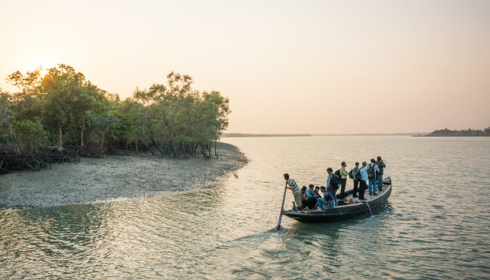
1. Which are the best travel apps for booking flights?
The most popular and effective flight booking apps include the following:
Google Flights – Useful for price comparison and flexible date search.
Skyscanner – Offers a vast number of options with flexibility in filtering.
Hopper – Predicts price trends and tells you when to book.
Kayak – Not only do they offer flights but also book hotels and rent cars.
Momondo – It’s a good site for finding the cheapest flight deals.
These apps help you compare several airlines, track price changes, and make the most cost-effective choice.
2. How can I use travel apps to find the best hotel deals?
Here are some tips to find the best hotel deals:
Use comparison tools: Apps like Booking.com, Expedia, and Hotels.com collect prices from many hotel chains and booking sites.
Set price alerts: Many apps let you set up alerts for price drops or discounts.
Look for hidden deals: Apps like HotelTonight specialize in offering last-minute hotel deals.
Check for rewards: Apps like Airbnb and Priceline often offer loyalty programs or discounts for repeated bookings.
3. Can travel apps help with planning itineraries?
Yes, there are several apps good for planning detailed itineraries, such as
TripIt: Automatically organizes your travel plans by syncing travel confirmation emails and creating a detailed itinerary.
Roadtrippers: This app is ideal for planning road trips, suggesting interesting stops and attractions along the way.
Google Trips: Saves destinations, travel reservations, and suggested itineraries to help you plan a trip.
Sygic Travel: You can create day-by-day itineraries, local attractions, and sightseeing spots.
These apps will allow you to create a personal itinerary based on your interests and travel preferences.
4. How can I use travel apps to navigate foreign cities?
Travel apps can help you get around easily:
Google Maps: Provides detailed maps, public transport options, and walking routes in most cities around the world.
Citymapper: Provides multi-modal public transit directions for major cities worldwide.
Maps.me: You can use maps offline, which comes in handy when there is bad internet connectivity.
Uber or Lyft: Useful applications for ride-hailing in cities with these services available.
You can use these applications to find how to get to public transportation, walking routes, or even how to book taxis or ride-sharing services.
5. What apps are the most useful for locating local restaurants and food places?
To find local food:
Yelp: It is one of the popular apps that offer reviews, ratings, and recommendations for restaurants and eateries.
TripAdvisor: User-generated reviews and recommendations for restaurants with pictures and menus.
Zomato: Useful for restaurant reviews and more information about cuisines, prices, and reviews.
OpenTable: Useful to book reservations at popular dining places, especially in cities.
These apps can help you find the best places to eat, read reviews, and even make reservations when needed.
6. How can I track my travel expenses using travel apps?
There are apps designed for management of the travel budget:
Trail Wallet: a good easy expense tracker designed specifically for travelers. you can sort by categories or set daily limits.
Expensify is needed for tracking expenses, receipt scanning and extremely recommended for business trips.
Splitwise comes in handy when splitting travel costs with friends or fellow travelers, you can even be sure that the costs are divided in a fair manner.
TravelMapper: Tracks your expenses on a trip and lets you share your travel plans with others.
These apps track your daily expenses, ensure you don’t go over budget, and make group travel easier on the finances.
7. Which are the best travel apps for managing flights and hotel bookings?
To keep all your bookings in one place:
TripIt: Syncs your flight and hotel bookings and gives you a clean itinerary.
Google Trips: Automatically organizes your reservations for flights, hotels, and activities.
Kayak Trip Huddle: Helps you organize group trips by comparing flight options and accommodations for your group.
CheckMyTrip: Syncs your flight, hotel, and car rental bookings into one easy-to-use itinerary.
You can consolidate all your bookings on one platform using these apps; it’s all easy to view and manage from there.
8. Can travel apps help with language barriers?
Yes, many apps offer language assistance:
Google Translate: Translates text, speech, and even images in real-time, supporting over 100 languages.
Duolingo: A language-learning app that can help you brush up on basic phrases before traveling.
iTranslate: Offers voice translation and text translation in multiple languages.
Microsoft Translator: Provides instant translations and even offline capabilities.
These apps allow you to communicate effectively in foreign languages, easing the stress of language barriers.
9. Are there apps to help find local experiences and things to do?
Yes, excellent apps for local experiences include
Airbnb Experiences: If it’s local, unique, off-the-beaten-path accommodation and more Airbnb will have you covered from a cooking class in Tuscany to an African Safari.
Viator: Loads of local tours and activities plus some attractions-most come with skip the line entry
GetYourGuide: Loads of different experiences, and guided tours bookable through the app.
Eventbrite: It helps you find local events, concerts, festivals, and activities according to your travel dates and location.
These apps help you find the activities that are of your interest and let you explore destinations deeper.
10. How do I use travel apps to stay safe while traveling?
Safety features are crucial for peace of mind while traveling:
TravelSafe provides a global directory of emergency telephone numbers, information on local precautions, and embassy or consulate contact listings for any destination.
Google Maps: With actual-time traffic reporting and walking mode, it’s able to lead you away from unsafe areas and dangerous routes
TripWhistle: Provides details on local contacts for police, fire, and other medical services located in your location.
Smart Traveler: This is the official app by the U.S. State Department with travel advisories, embassy information, and safety tips for U.S. citizens traveling abroad.
These apps inform and prepare you to handle emergencies more effectively when abroad.
Conclusion
By efficiently using travel apps, you could significantly improve your travel experience with regards to time, money, and stress saving. You should, therefore, pick the appropriate apps for flights, itineraries, navigation, and local experiences. Thus, you could have a less hectic journey by concentrating on your adventure. You should always ensure you download crucial apps before travel and keep updating them for optimal use.



Rummy with a twist! Rammy91 is a pretty fun take on the classic card game. I’ve been enjoying the tournaments and the different game modes. Give it a try: rami91